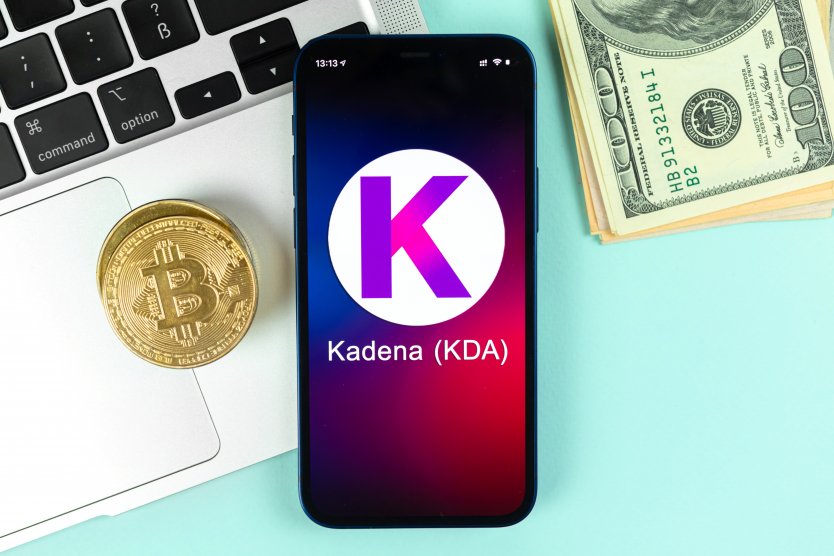Cryptocurrencies are gaining popularity as the world embraces digitalization. Among the newer entrants in this space is Kadena (KDA), a blockchain platform designed to offer scalability, security, and interoperability to its users. This platform aims to provide solutions to some of the key challenges facing existing blockchain networks, such as low transaction processing speeds and lack of cross-chain compatibility. If you are interested in bitcoin trading, then you can start your trading journey then Click here
Kadena was created in 2016 by a team of blockchain experts and launched its mainnet in 2019. Its unique approach to blockchain technology combines both public and private blockchains, enabling it to handle high transaction volumes while maintaining security and efficiency. Kadena is powered by its native token, KDA, which is used to facilitate transactions on the network.
Kadena also boasts of an intuitive development environment, making it easy for developers to build decentralized applications on its platform. The platform’s open-source architecture and compatibility with existing programming languages also make it attractive to developers seeking to create blockchain-based solutions.
Table of Contents
What is Kadena?
Kadena is a blockchain platform created in 2016 by a group of former JPMorgan employees. The goal of the platform is to provide a secure, scalable, and high-throughput blockchain network that can be utilized for various applications. To ensure network security, Kadena employs a consensus algorithm called Proof of Work. Additionally, Kadena utilizes a smart contract language called Pact to enable developers to build decentralized applications (dApps) on its network. Overall, Kadena is a robust blockchain platform that offers developers a secure and efficient platform to build and deploy decentralized applications. If you are interested in online trading, you may want to check out Bitcoin Loophole which is an online trading platform.
How Does Kadena Work?
Kadena is a blockchain platform that uses a unique hybrid blockchain architecture to offer both public and private blockchain solutions. Its public blockchain, Chainweb, is composed of multiple chains that run parallel, resulting in higher scalability and throughput. The chains in Chainweb use a Proof of Work consensus algorithm to validate transactions and secure the network. On the other hand, Kadena’s private blockchain, Pactum, is used for sensitive transactions and is only accessible to authorized parties.
One of the standout features of Kadena is its smart contract language, Pact. Unlike other blockchain platforms, Pact is user-friendly and designed to be used by developers who aren’t necessarily experts in blockchain technology. The language is Turing-complete, which means that it can be used to develop a wide range of decentralized applications. Additionally, Pact is built to be safe and secure, with integrated features that prevent common programming errors that could lead to vulnerabilities in smart contracts.
What Sets Kadena Apart?
Kadena is a blockchain platform that has unique features that set it apart from other blockchain platforms. One of these features is its hybrid blockchain architecture, which combines a public blockchain for greater scalability and throughput with a private blockchain for sensitive transactions. This approach is not commonly used in the industry and allows for more flexibility and security.
Another distinguishing feature of Kadena is its smart contract language, called Pact. Pact makes it easier for developers to create decentralized applications (dApps) on the Kadena network, as it is designed to be user-friendly and efficient.
Kadena has also formed partnerships with several high-profile companies, including R3, the company behind the Corda blockchain platform. These partnerships are aimed at expanding Kadena’s technology and increasing its reach.
Conclusion
Kadena is a blockchain platform that offers its users the benefits of scalability, security, and interoperability. Its hybrid blockchain architecture, which combines both public and private blockchains, allows for increased efficiency and flexibility in the creation of decentralized applications.
Moreover, Kadena utilizes its own smart contract language, Pact, which offers advantages such as improved security, formal verification, and ease of use. This makes Kadena an appealing option for developers seeking to build decentralized applications with enhanced functionality and security.
Furthermore, Kadena has formed partnerships with various industry players, including Fortune 500 companies, to develop blockchain solutions for real-world use cases. These partnerships demonstrate the potential for Kadena to become a leading player in the blockchain industry.
In conclusion, Kadena’s hybrid blockchain architecture and unique smart contract language provide a promising foundation for the creation of decentralized applications. With a strong team of developers and partnerships with major companies, Kadena has the potential to become a significant player in the blockchain space.



